11 projects from students of Falmouth University's Sustainable Product Design course
Reusable 3D-printed fracture casts and a compost caddy are among the products presented in this VDF school show, which features work produced as part of a course at Falmouth University that focuses specifically on sustainable design. The undergraduate course aims to help students create "products with a lifetime far beyond what is typical" and to The post 11 projects from students of Falmouth University's Sustainable Product Design course appeared first on Dezeen.

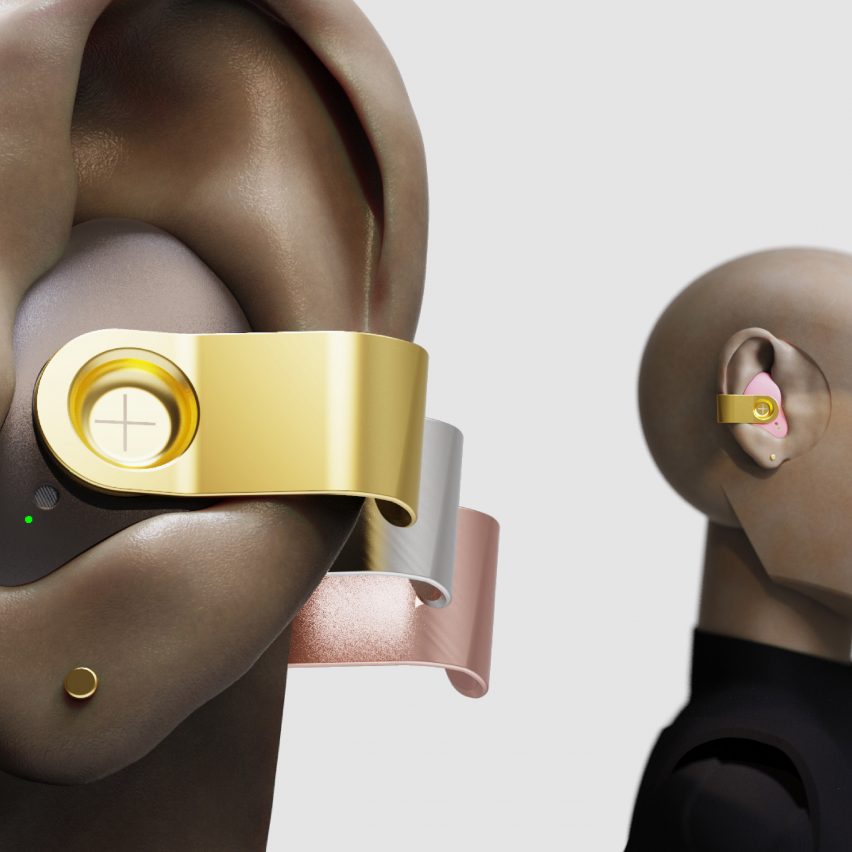
Reusable 3D-printed fracture casts and a compost caddy are among the products presented in this VDF school show, which features work produced as part of a course at Falmouth University that focuses specifically on sustainable design.
The undergraduate course aims to help students create "products with a lifetime far beyond what is typical" and to ultimately bring about positive behavioural change in their users.
With the school based in the seaside town of Falmouth in Cornwall, several of the graduates chose to tackle the issue of ocean pollution in particular, through products ranging from portable water quality tests for surfers to buttons made from recycled marine nylon.
BA Sustainable Product Design, Falmouth University
University: Falmouth University
Course: BA Sustainable Product Design
Tutors: Drummond Masterton, Evy Dutheil, Simon Andrews and Gary Allson
Course statement:
"The Sustainable Product Design course is a three-year undergraduate programme driven by the major challenges facing humankind today. Our students explore the social, environmental and ethical aspects of product design, learn how to create products with a lifetime far beyond what is typical and consider how to create positive changes in human behaviour to improve sustainability.
"As part of this future-focused product design course, students learn how to become independent practitioners with a strong understanding of truly sustainable products. They develop a broad range of creative and prototyping skills and critical thinking, to bring ideas to life through the design process. Their work reflects their own experiences and interests, developing a personal direction towards the type of designer they wish to become.
"Our students nurture strong networks within the course and the wider design industry, which supports their ongoing development as designers."
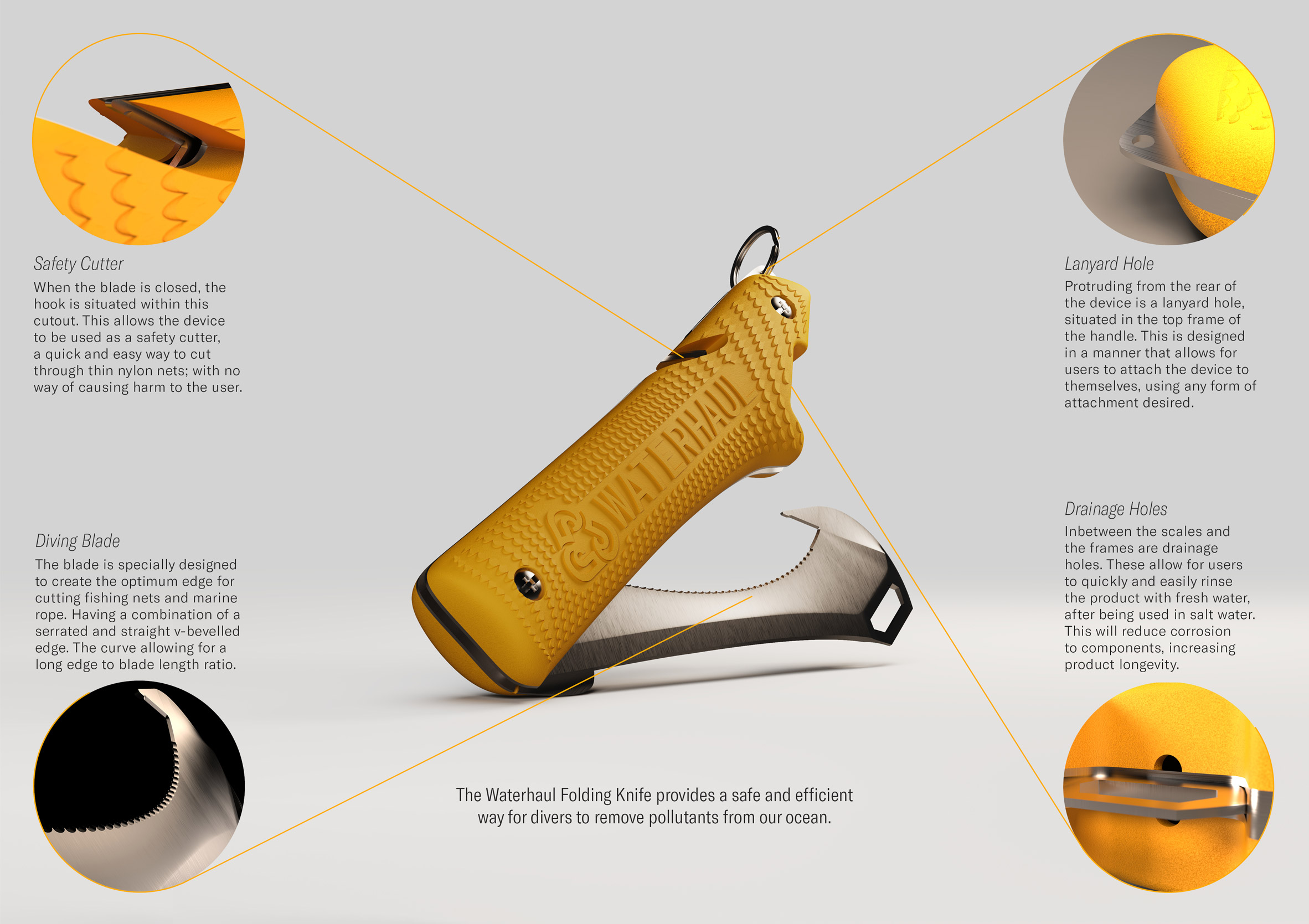
Waterhaul Folding Knife by Aled Foley
"There are no tools specifically designed for divers to retrieve abandoned fishing gear, also known as ghost gear, from our polluted oceans. The Waterhaul Folding Knife has been developed for Waterhaul, a Cornish social enterprise creating products from recycled fishing nets.
"Insights from potential users, facilitated by the charity Ghost Fishing UK, helped to inform the design development. The blade folds away allowing the knife to be used as a safety cutter when closed. The product can be fully disassembled, increasing longevity and repairability. Most importantly, the knife provides a safe and efficient method for divers to undertake this important task."
Portfolio: behance.net/aledfoley
Email: aledfoleydesign@gmail.com

ADRC-300 Rail Safety Device by Alexander Day
"This product is designed to reduce near-miss incidents for train track maintenance workers. Over the past five years, the average number of near-miss incidents in the UK was 67 per year, with 64 in 2019. My aim was to design a sustainable product that prevents trains from approaching track workers.
"This is achieved by turning the nearest signals red via remote control. The product utilises durable materials such as nylon and Hardox steel to guarantee longevity. Its modular construction accommodates potential future technology and provides an enduring, sustainable product for railway maintenance workers."
LinkedIn: linkedin.com/alexander-day
Email: alexanderday88@yahoo.co.uk
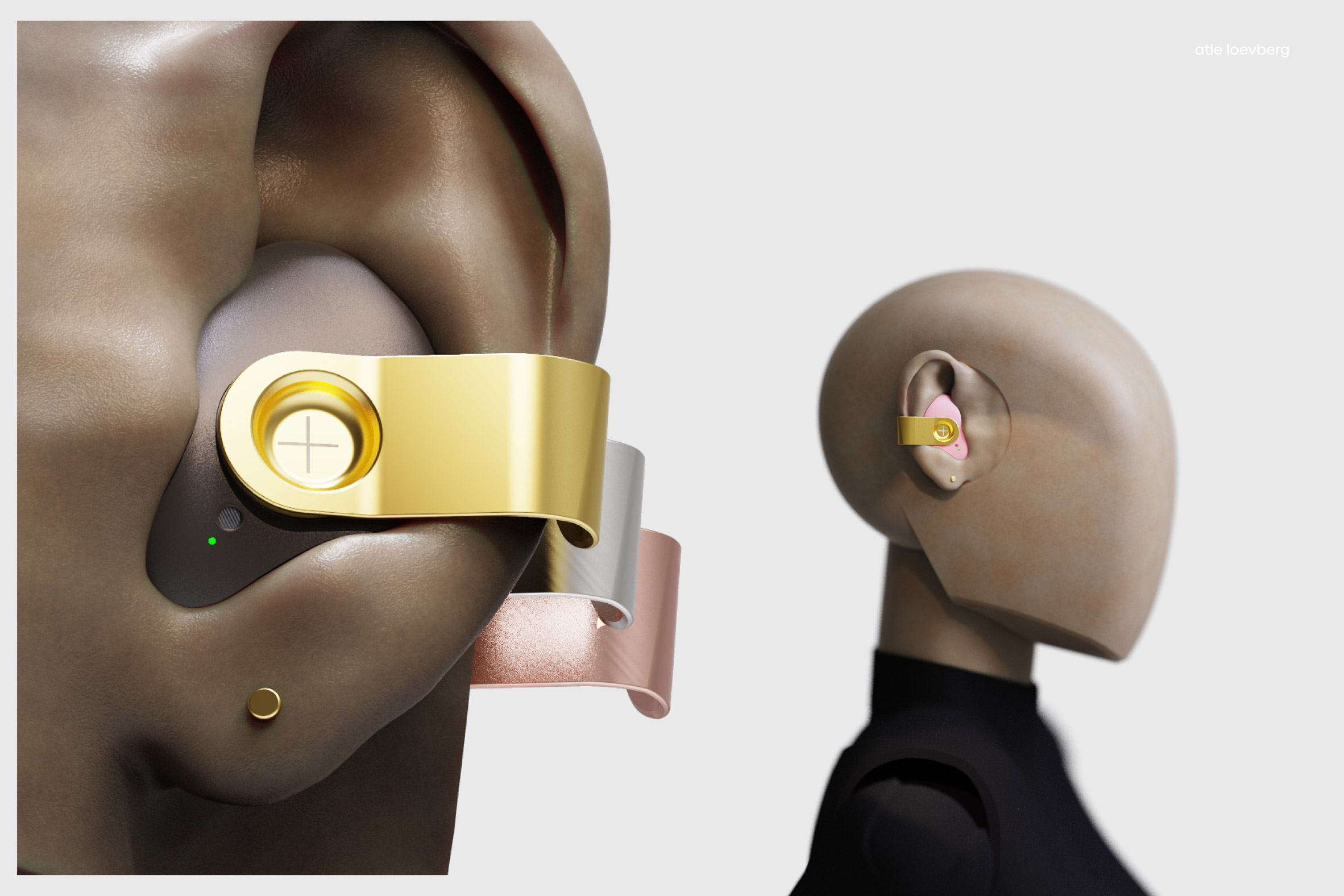
Karen Hearing Aid by Atle Loevberg
"Unlike traditional hearing aids, this design has an open structure that naturally reflects the shape and function of the ear. Users can add bespoke attachments and functions to the opening of the hearing aid to better reflect personal tastes, cultures and values.
"Traditional hearing aid designs where colour is the only variable are challenged by inviting brands and designers to develop their own attachments for their audiences. This blurs the boundary between clinical assistive technologies and jewellery."
Website: loevberg.com
Email: lovberg@outlook.com
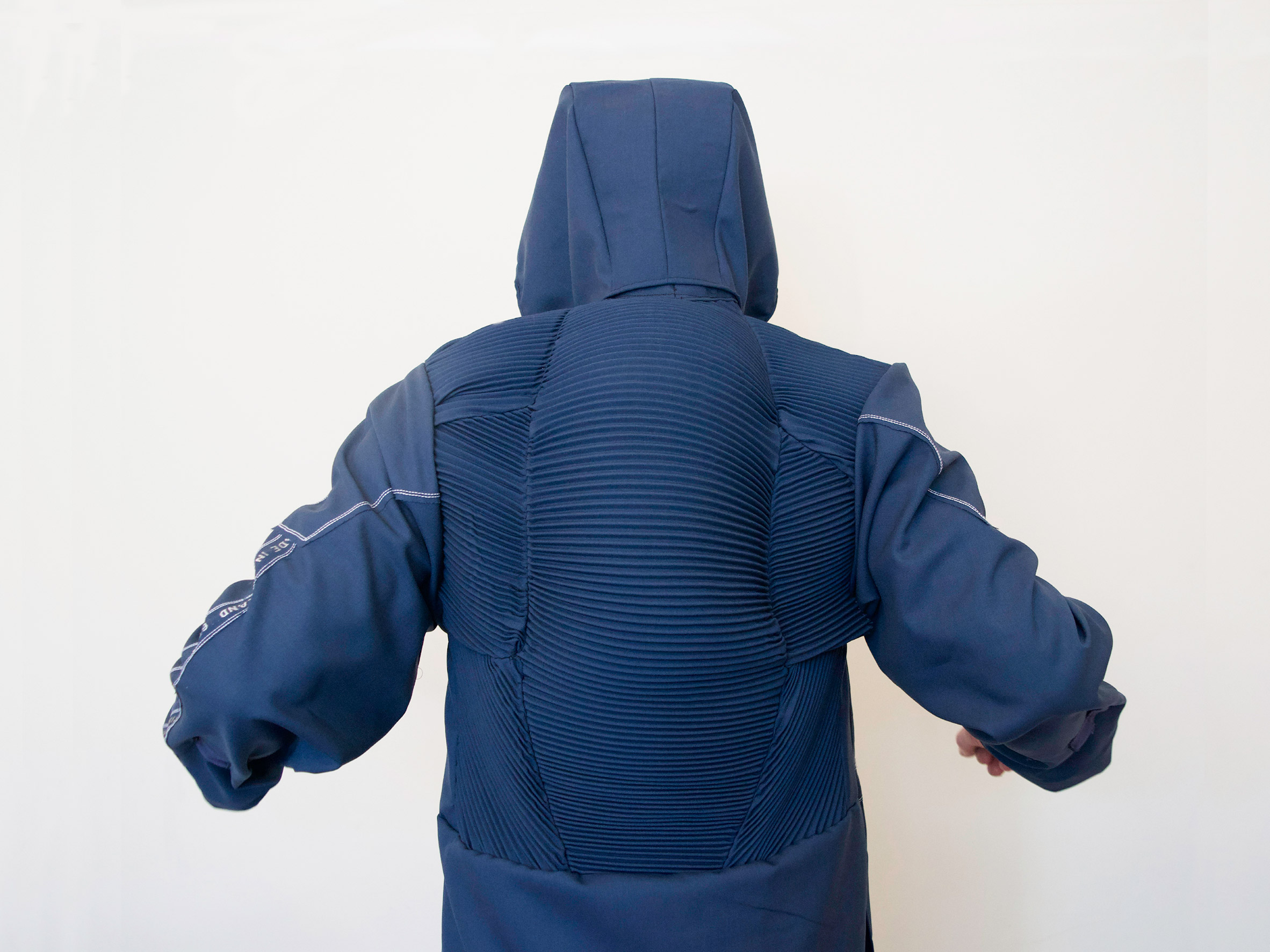
Mono by Emma Lacey
"This project showcases the sustainable advantages of wool and challenges perceptions regarding wool's capabilities. Mono is a mono-material jacket, made from natural materials that were sourced locally within a ten-kilometre radius from where the product was constructed.
"The designed was created specifically to be worn during rock climbing and the wool is given engineered stretch at key articulation points. The result is a made-to-last jacket, which breathes and moves with the user through the innovative use of pleating."
LinkedIn: linkedin.com/emma-lacey
Email: studiolacey@gmail.com
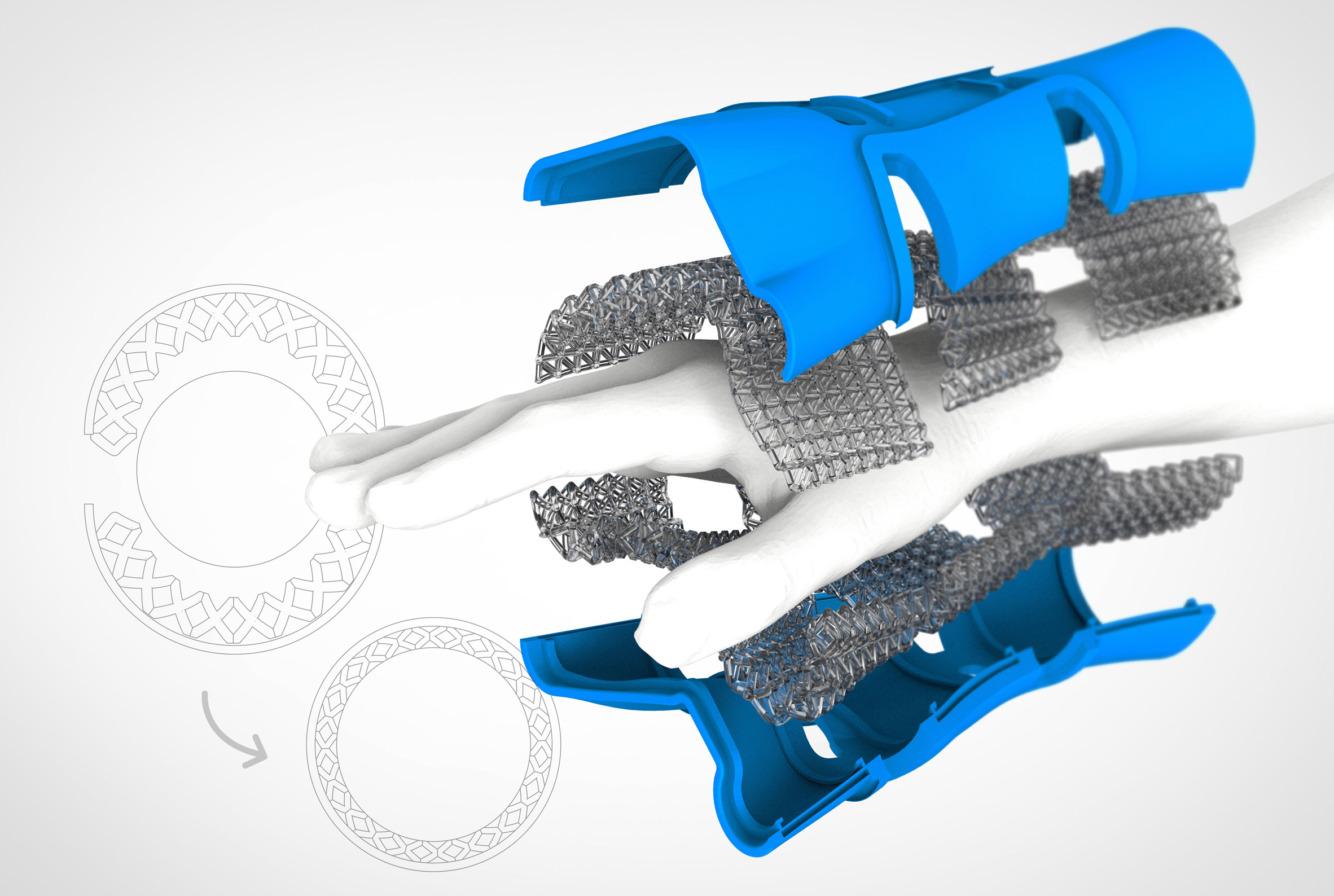
DynamiCast by Jack Cockle
"DynamiCast harnesses 3D printing technology to promote sustainability within the medical industry. 3D-printed fracture casts are becoming increasingly popular, as they are more comfortable than their conventional counterparts. However, since they are still tailor-made to a specific patient's anatomy, they remain single-use objects.
"DynamiCast involves the use of 3D-printed elastic mesh to allow reusability. The shape of the mesh compresses and morphs around the patient's limb during use and returns to its original, neutral shape after removal. This allows a single cast to fit multiple people with similar-sized limbs and enables reuse."
LinkedIn: linkedin.com/jack-cockle
Email: jpcockle@outlook.com
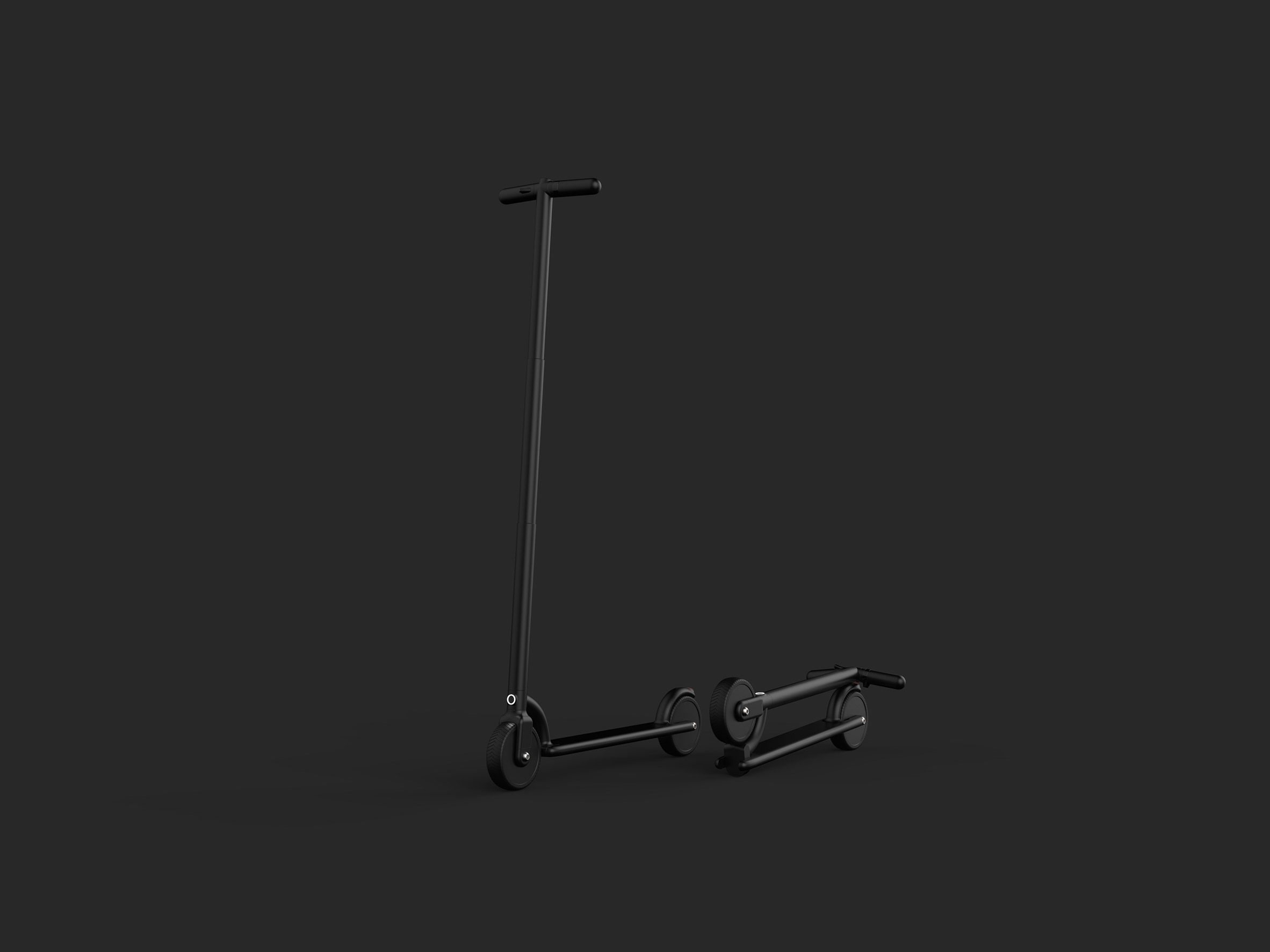
C-GO by Kyle Seago
"C-GO (city-go) is a design concept for a small, lightweight, privately-owned electric scooter. Compact enough to fit into a rucksack, it is the key to solving the so-called 'last mile' problem of how commuters can get from a public transport station to their actual destination.
"The scooter weighs less than six kilograms and has a 16-kilometre range on a single charge. By designing micromobility solutions, we are incentivising commuters out of their cars and onto public transport. This reduces congestion and pollution in cities that are expecting a surge in commuters between now and 2050."
LinkedIn: linkedin.com/kyle-seago
Email: kyle.seago@hotmail.co.uk
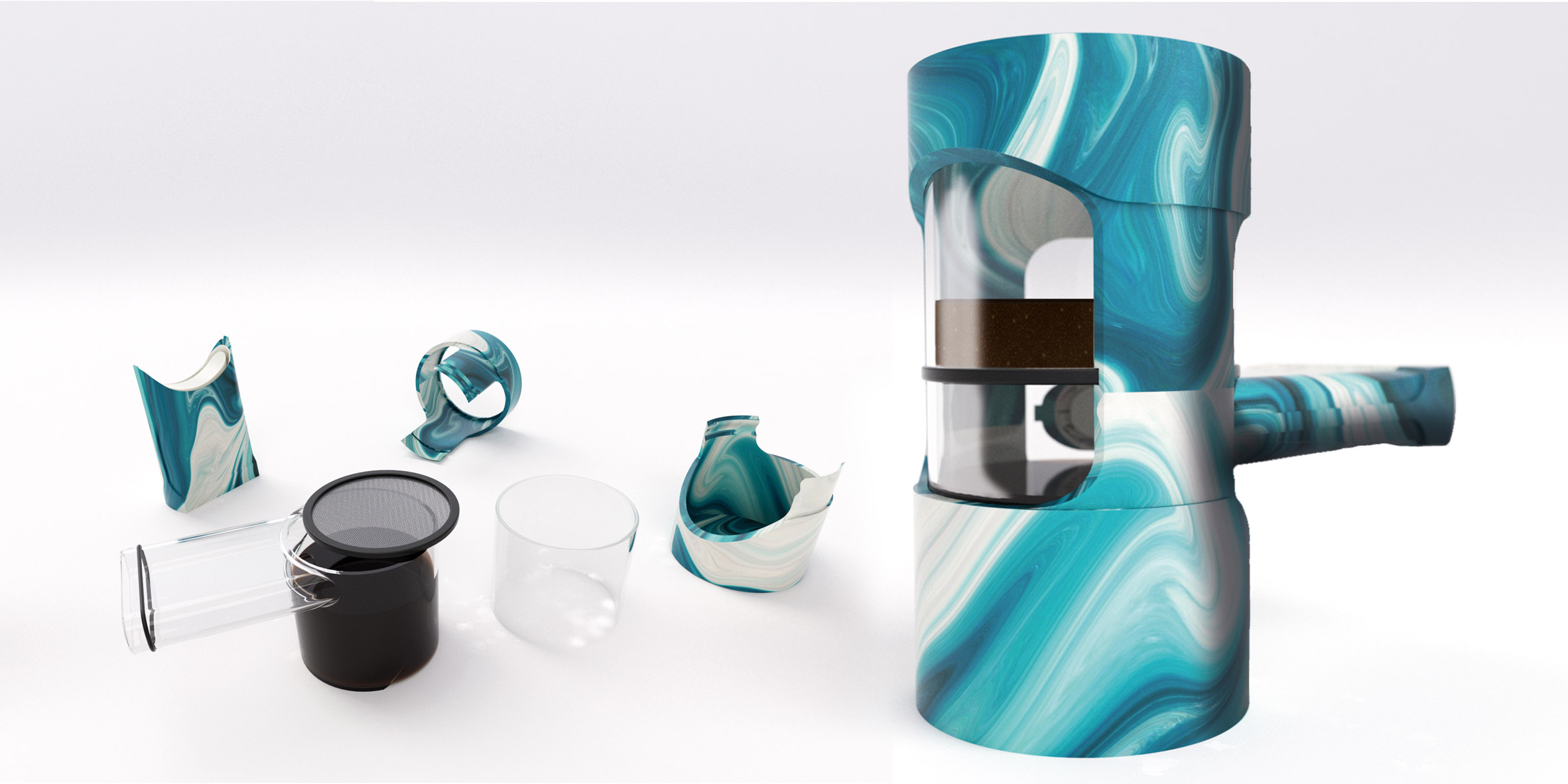
Wabi Starbi by Louis Heatlie
"Coffee machines are loud, inefficient and visually invasive. To combat this, I have designed a personal coffee tool for the home, as part of a live project with Starbucks. Inspired by the Japanese philosophy of Wabi Sabi, this coffee tool is made out of colour contaminated High-Density Polyethylene (HDPE) plastic, which would otherwise have been sent to landfill. This makes each one individual and unique.
"The product focuses on the user experience, moving away from the impersonal, modern and material-intensive design of traditional coffee machines. Instead, this coffee tool enables the user to be more involved in the coffee-making process while drastically dematerialising the product itself."
Portfolio: behance.net/louisheatlie
Email: Louis.heatlie@outlook.com
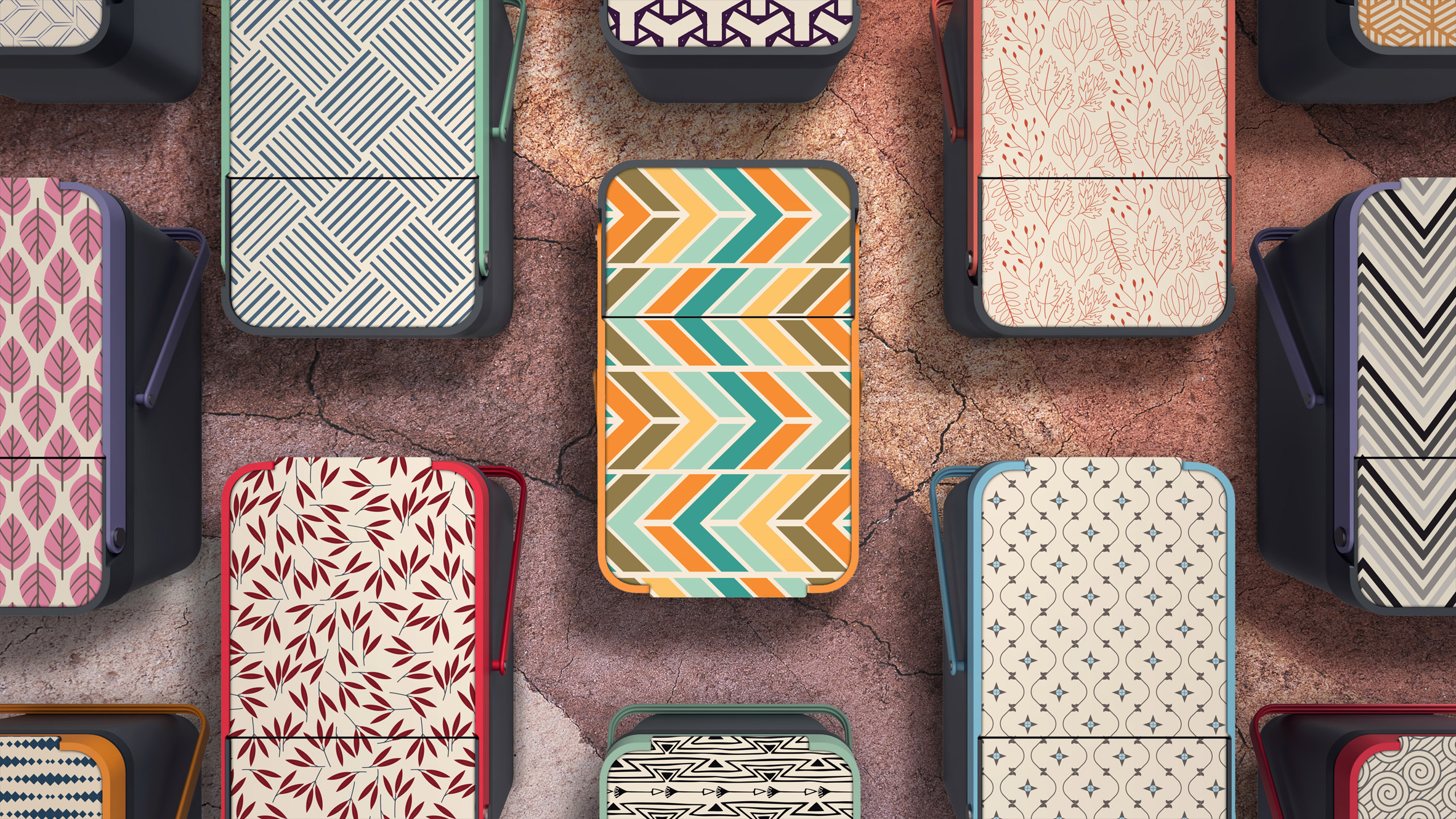
Chompa by Luke Meller
"With our consumption of resources continuously growing, it is becoming ever more important to embrace a circular economy. We need to be extracting the most value from materials that already in use and the food industry is an often-overlooked waste stream.
"Chompa is a food caddy designed specifically with composting and earthworm cultivation in mind. The caddy aids in the process of transforming our organic kitchen waste into highly nutritious food for the plants that we consume. To allow for faster decomposition, the surface area of the waste is increased as it is deposited into the caddy."
Website: lukemeller.co.uk
Email: luke.meller@icloud.com
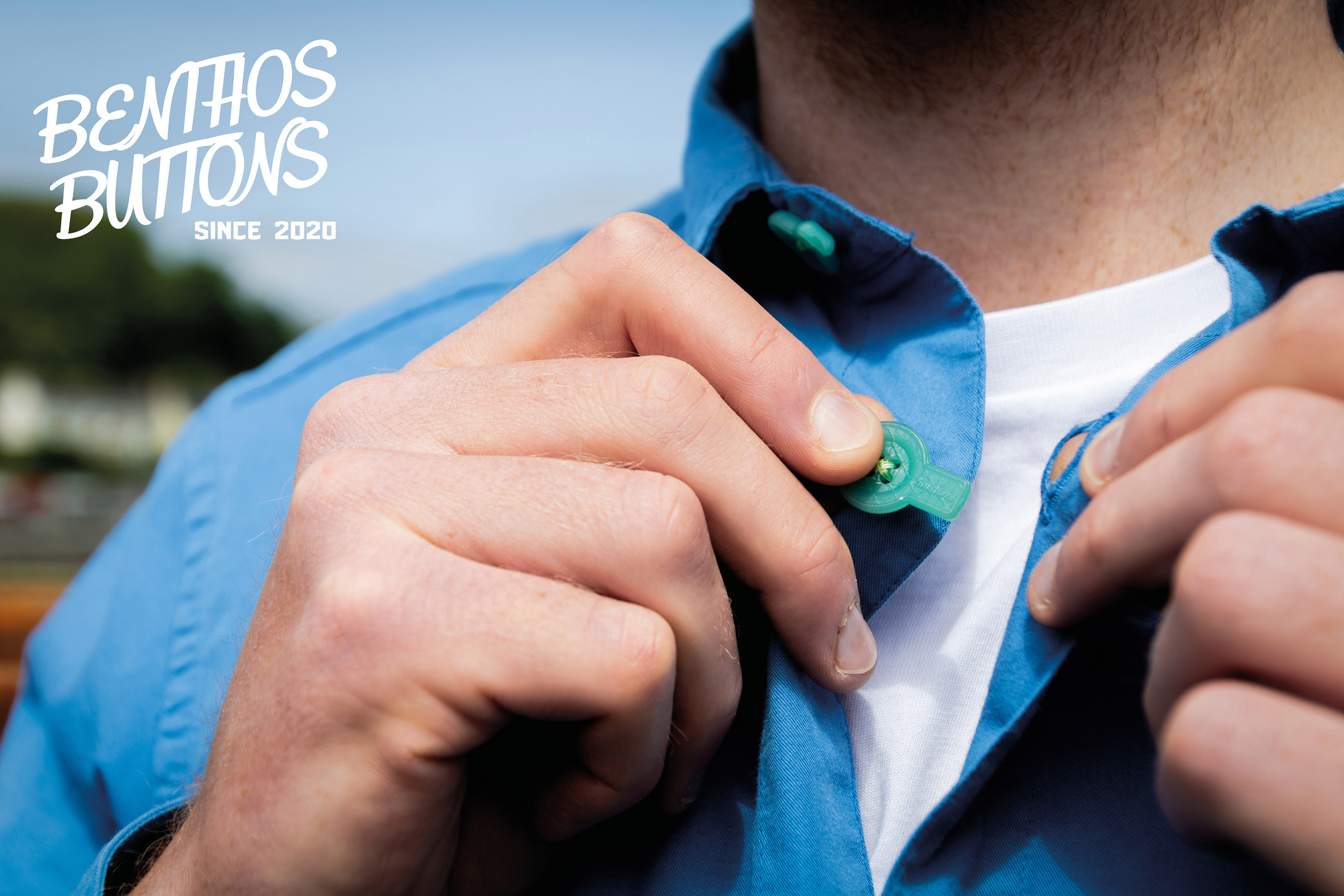
Benthos Buttons x Finisterre by Niall Jones
"Benthos Buttons collaborated with Finisterre to produce a set of buttons with the Cornish apparel company's branding. This collaboration demonstrates the ability for brands to produce custom, high-quality buttons while considerably reducing their carbon footprint.
"Using 100 per cent recycled marine nylon, the buttons are designed for cold water surfers and sufferers of hand dexterity issues, allowing them to get changed with ease. The carbon footprint of producing 46 marine nylon buttons is equal to that of one virgin nylon button."
Portfolio: behance.net/NialljamesJones
Email: NiallJamesJones@gmail.com
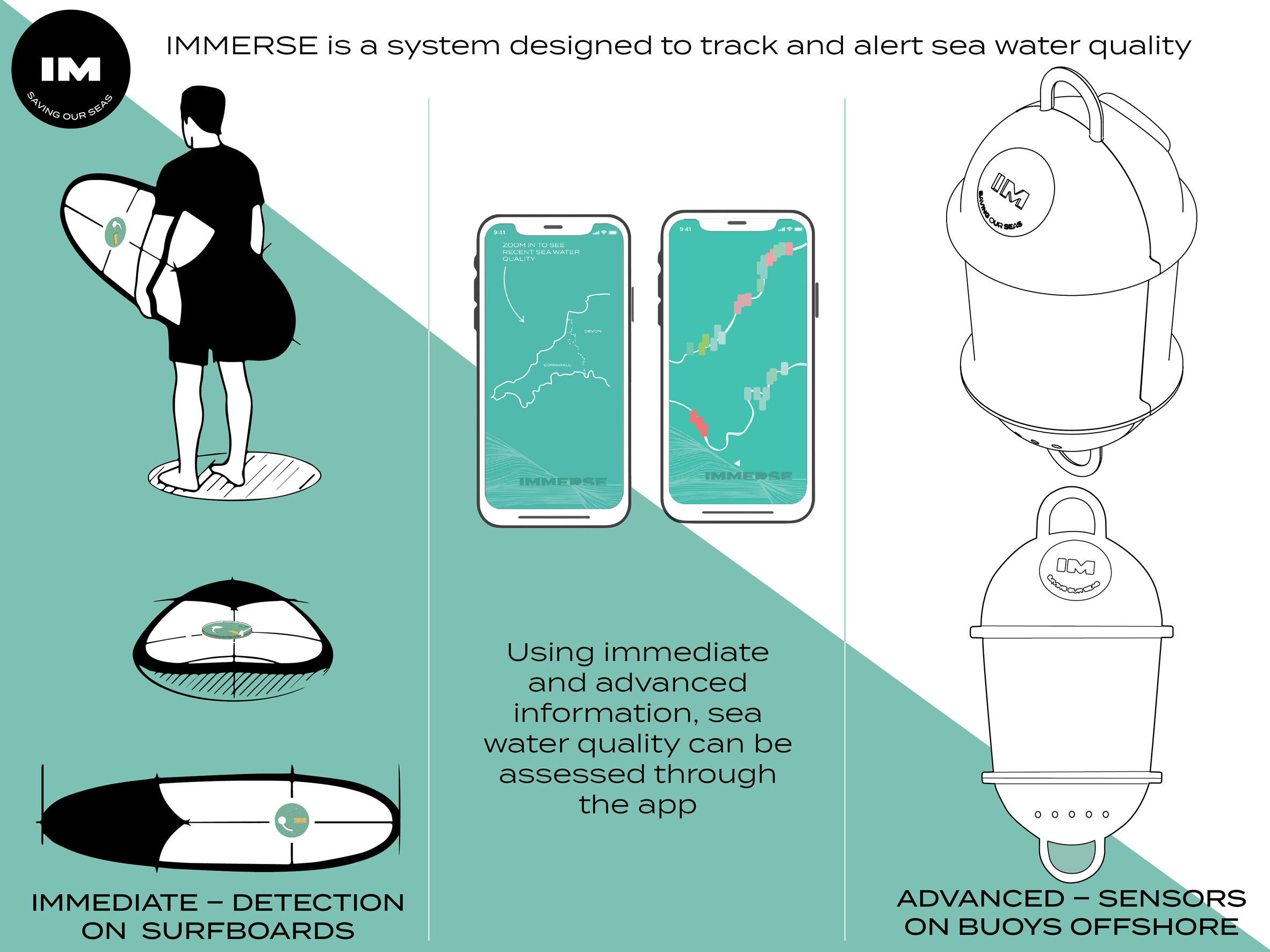
Immerse by Pia Alexander-Dann with contributions from Jazmine Virgo
"Water companies are not legally required to disclose information regarding raw sewage influxes into the sea outside of summertime. This means that, outside of this time, surfers are unknowingly swimming in hazardous waters. In response to this issue, Immerse is as a system that provides them with water quality information, using litmus paper to measure the acidity of the sea.
"The product is attached to the user's surfboard, providing immediate feedback on water quality. Users upload this data to the Immerse app, providing other users with up-to-date information. Attaching the device to offshore buoys can also provide further water quality data."
Website: piaalexander-dann.com
Email: p.alexander-dann@live.co.uk
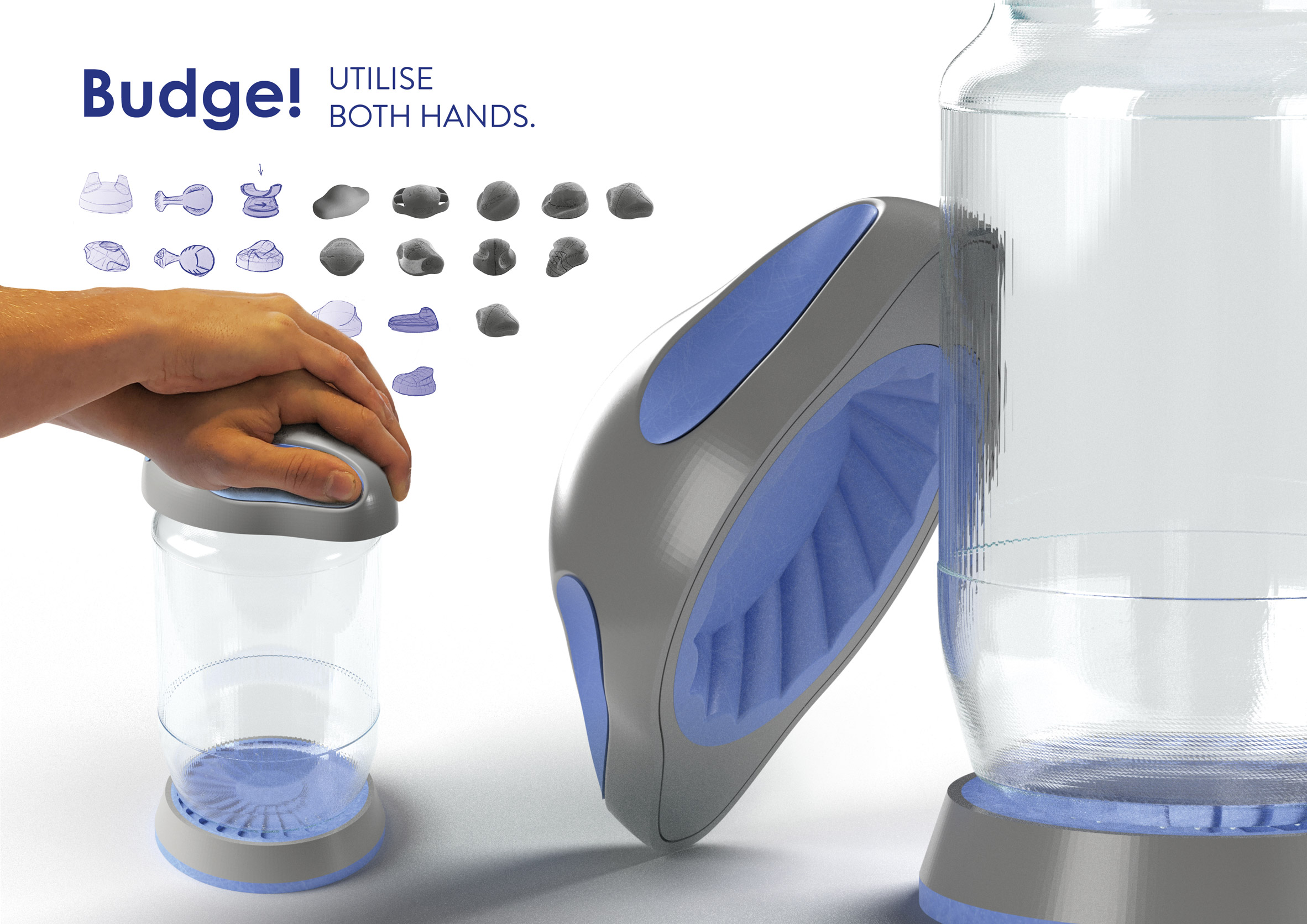
Budge by Sam Whittingham
"There are many jar openers available on the market but unfortunately, few work well. Budge was developed through user-centred design methods to help those suffering from a lack of dexterity, strength and grip due to arthritis.
"The grip has been developed with ergonomic considerations and comfort in mind while making the application of strength far easier for the user. Thanks to the bottom mat, both hands can be utilised to twist the lid while the silicone provides surface grip and presents the jar from moving."
LinkedIn: linkedin.com/sam-whittingham
Email: sdjwhittingham@gmail.com
Virtual Design Festival's student and schools initiative offers a simple and affordable platform for student and graduate groups to present their work during the coronavirus pandemic. Click here for more details.
The post 11 projects from students of Falmouth University's Sustainable Product Design course appeared first on Dezeen.
